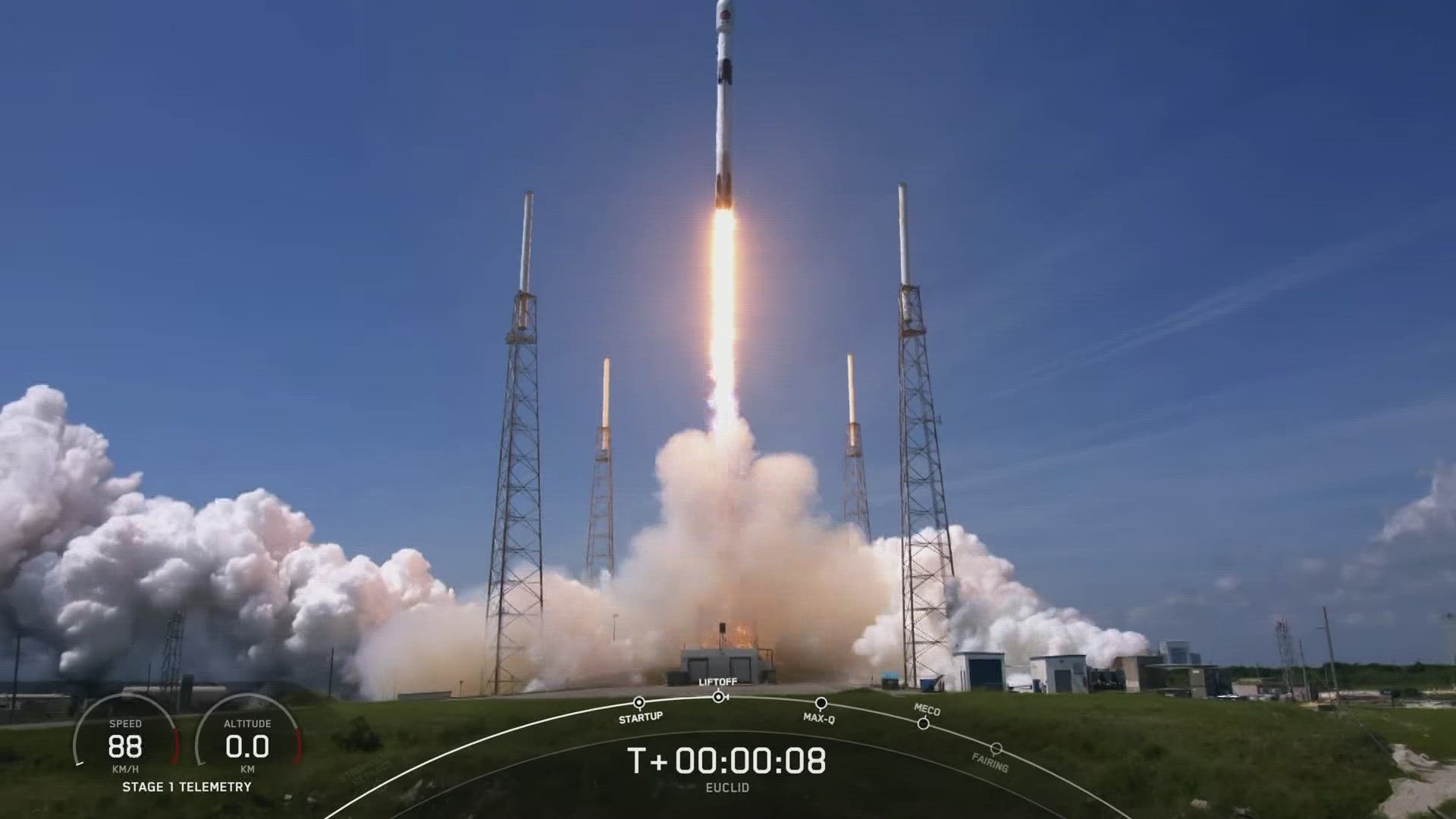CAPE CANAVERAL, Fla. — Europe is set to send its Euclid spacecraft into space aboard a SpaceX Falcon 9 rocket.
The space telescope scheduled to launch at 11:12 a.m. on July 1 from Cape Canaveral will be on a mission to shed light on the mysteries of dark matter and dark energy in space. If Saturday's launch doesn't go as planned, a backup opportunity is available at the same target time on Sunday.
After the launch, Euclid is expected to spend about a month traveling to the distant Sun-Earth Lagrange Point 2 on the opposite side of the sun. This is about a million miles from Earth, Space.com says. It's also where the James Webb telescope can be found hovering.
While exploring the unknown, Euclid will chart a 3D map of the universe encompassing two billion galaxies across more than a third of the sky. One of the main objectives of Euclid is to understand dark matter and dark energy, which together make up 95 percent of the universe, according to Science X Daily.
This will help researchers understand what the universe is made of. Scientists expect to see Euclid's first images in October.
A live webcast of the mission will begin about 15 minutes before liftoff.

